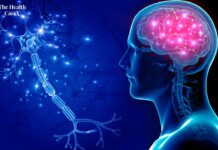If you are experiencing atrial fibrillation or AFib, you may wonder if anxiety could be the cause. AFib is a common heart condition affecting blood flow in the heart’s upper chambers. It can cause symptoms like heart palpitations, chest pain, shortness of breath, and feelings of faintness. On the other hand, anxiety is a mental health condition that can cause worry, fear, and unease. While there is no clear link between anxiety and AFib, studies suggest that anxiety can contribute to irregular heart rhythms, including AFib.
AFib and anxiety can lead to irregular heart rhythms, known as arrhythmia. While anxiety may not directly cause AFib, it can contribute to other heart conditions leading to AFib. A large study of people with regular heart rhythms found that anxiety and severe depression do not increase the risk of AFib. However, feeling depressed or anxious can make AFib symptoms worse. Additionally, feeling angry or stressed about work may worsen AFib symptoms. Managing your anxiety and stress levels is important to reduce the risk of AFib symptoms.
Understanding Atrial Fibrillation
What is Atrial Fibrillation?
Atrial fibrillation (AFib) is a type of arrhythmia, which is an irregular heartbeat. In AFib, the heart’s upper chambers (atria) beat irregularly and out of sync with the lower chambers (ventricles). This can lead to poor blood flow and increase the risk of blood clots, stroke, and heart failure. AFib can affect people of all ages, but it is more common in older adults.
Symptoms of Atrial Fibrillation
Some people with AFib may not experience any symptoms, while others may experience one or more of the following:
- Irregular heartbeat
- Rapid heartbeat
- Shortness of breath
- Fatigue
- Dizziness or lightheadedness
- Chest pain or discomfort
It is important to note that other conditions, such as anxiety or panic attacks, can cause some of these symptoms. If you experience any of these symptoms, it is important to consult with your healthcare provider to determine the underlying cause.
In summary, AFib is an irregular heartbeat that can lead to serious health complications. If you experience any symptoms of AFib or have concerns about your heart health, it is important to seek medical attention promptly.
Anxiety and Its Impact
Understanding Anxiety
Anxiety is a common mental health condition that affects millions of people worldwide. Feelings of fear, worry, and nervousness often characterize it. Various factors, including stress, trauma, and genetics, can trigger anxiety. It can also be a side effect of certain medications or medical conditions.
Effects of Anxiety on Heart Health
Anxiety can significantly impact heart health, particularly in individuals with pre-existing heart conditions. Anxiety can lead to increased heart rate, blood pressure, and the release of stress hormones, such as cortisol and adrenaline. These physiological changes can trigger arrhythmias, including atrial fibrillation.
Research has shown that anxiety may contribute to irregular heart rhythms, leading to atrial fibrillation. In some cases, individuals with anxiety may experience severe irregular heartbeats as a response to their anxiety. The exact cause of this is not entirely clear, but it is believed to be related to the increased activity of the sympathetic nervous system, which modulates arrhythmogenesis.
Furthermore, high stress and anxiety levels can increase the risk of many health problems, including heart disease. A large study of people with regular heart rhythms found that anxiety and severe depression do not increase the risk of atrial fibrillation. However, more research is needed to understand possible links between anxiety and heart health.
In conclusion, anxiety can significantly impact heart health, particularly in individuals with pre-existing heart conditions. It can lead to increased heart rate, blood pressure, and the release of stress hormones, which can trigger arrhythmias, including atrial fibrillation. Understanding the effects of anxiety on heart health is essential for individuals with pre-existing heart conditions to manage their condition effectively.

Link Between Atrial Fibrillation and Anxiety
If you have atrial fibrillation (AFib), you might be wondering if anxiety could be causing it. While research is still ongoing, some evidence suggests that anxiety may play a role in the development or worsening of AFib.
Research Findings
Several studies have looked at the relationship between anxiety and AFib. One large study found that while anxiety and severe depression do not increase the risk of AFib, feeling depressed or anxious can make AFib symptoms worse. Another study found that anxiety may contribute to irregular heart rhythms, including AFib.
Anxiety as a Trigger for Atrial Fibrillation
Anxiety can also act as a trigger for AFib. When you’re anxious, your body releases stress hormones like adrenaline, which can cause your heart to beat faster and irregularly. This can trigger an episode of AFib, especially if you already have an underlying heart condition.
If you have AFib and anxiety, managing your anxiety is important to help prevent AFib episodes. Some strategies that may help include:
- Practicing relaxation techniques like deep breathing or meditation
- Exercising regularly
- Getting enough sleep
- Avoiding caffeine and alcohol
- Talking to a therapist or counselor
Working closely with your doctor to manage your AFib and any underlying contributing conditions is also important. They may recommend medications, procedures, or lifestyle changes to help control your symptoms and reduce your risk of complications.
Overall, while the link between anxiety and AFib is still being studied, it’s clear that managing anxiety can play an important role in managing AFib symptoms. If you’re struggling with anxiety or AFib, don’t hesitate to contact your doctor for help.
Management Strategies
Managing Atrial Fibrillation
If you have been diagnosed with atrial fibrillation, working closely with your healthcare provider to develop a management plan is important. Treatment options may include medications, procedures, or lifestyle changes. Some lifestyle changes that may help manage atrial fibrillation include:
- Avoiding triggers such as caffeine, alcohol, and stress
- Eating a healthy diet
- Exercising regularly
- Maintaining a healthy weight
- Quitting smoking
Managing Anxiety
Anxiety can contribute to atrial fibrillation, so it is important to manage anxiety as part of a comprehensive management plan. Some strategies that may help manage anxiety include:
- Practicing relaxation techniques such as deep breathing, meditation, or yoga
- Getting regular exercise
- Connecting with others in a support group
- Spending time with supportive family and friends
- Seeking professional help from a mental health provider if needed
It is important to note that managing anxiety may help manage atrial fibrillation and improve overall quality of life. Working with your healthcare provider to develop a personalized management plan that addresses atrial fibrillation and anxiety can help you feel more in control of your health.
Conclusion
In conclusion, while evidence suggests that anxiety can contribute to some heart conditions, including atrial fibrillation, the relationship between the two is complex and not fully understood. It is important to note that anxiety alone is not a direct cause of atrial fibrillation, and numerous other factors, such as age, genetics, and lifestyle, can also play a role in the development of the condition.
If you are experiencing symptoms of atrial fibrillation, it is important to seek medical attention to determine the underlying cause and receive appropriate treatment. While anxiety may be a contributing factor, it is not the only potential cause, and a thorough evaluation is necessary to identify any underlying health issues.
Suppose you have been diagnosed with atrial fibrillation and also struggle with anxiety. In that case, working with your healthcare provider to develop a comprehensive treatment plan that addresses both conditions may be helpful. This may include lifestyle modifications, such as stress management techniques, regular exercise, medication, and other medical interventions as needed.
Overall, while the relationship between anxiety and atrial fibrillation is complex, there is no doubt that both conditions can significantly impact your health and well-being. By managing your anxiety and receiving appropriate treatment for atrial fibrillation, you can improve your overall health and quality of life.
Frequently Asked Questions
What medications can cause atrial fibrillation?
Some medications that can cause atrial fibrillation include certain asthma medications, thyroid medications, and some antibiotics. However, it is important to note that not everyone who takes these medications will develop atrial fibrillation.
What is the most common cause of atrial fibrillation?
The most common cause of atrial fibrillation is age-related changes to the heart. Other factors contributing to the development of atrial fibrillation include high blood pressure, heart disease, and alcohol use.
Can atrial fibrillation be cured?
While there is no cure for atrial fibrillation, it can be managed with medications and lifestyle changes. In some cases, procedures like ablation or cardioversion may be recommended.
Why does atrial fibrillation suddenly start?
Atrial fibrillation can suddenly start due to triggers like stress, caffeine, or alcohol. Underlying medical conditions like hyperthyroidism or heart disease can also cause it.
How do you know if you are in AFib or anxiety?
The symptoms of atrial fibrillation and anxiety can be similar, including palpitations, chest discomfort, and shortness of breath. However, a doctor can perform tests like an electrocardiogram (ECG) to determine if you are experiencing atrial fibrillation.
Can anxiety trigger atrial fib?
While anxiety can contribute to some heart conditions, including atrial fibrillation, it is not a direct cause. However, managing stress and anxiety through relaxation exercises and therapy may help reduce the risk of developing atrial fibrillation.
Also Read:
Causes of Heartbeat Sensation in Lower Stomach
What are Causes of Kidney Stones?





















